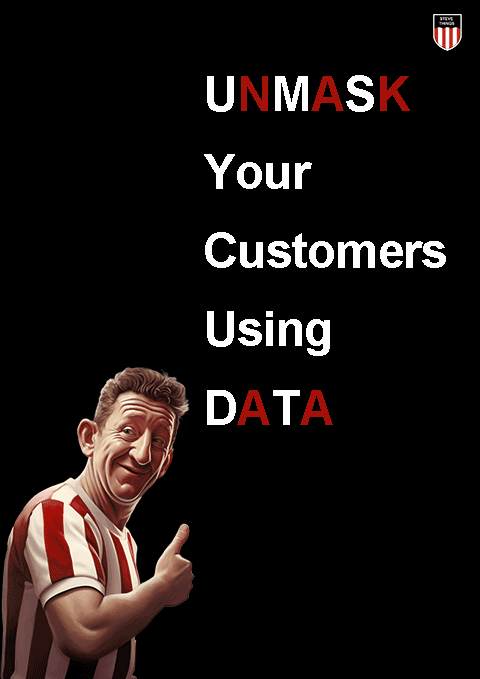Data privacy is one of the most important considerations for organisations today. With laws like the General Data Protection Regulation (GDPR), California Privacy Rights Act (CPRA), and other regulations, companies must be proactive in ensuring their data security is up to date. This can be a daunting task but a Customer Data Platform (CDP) rather than be restricted by these laws can actually help you adhere to them.
A CDP Can Actually Help You With Compliance
The growth of digital technology has created many opportunities for businesses, but it has also made safeguarding user data increasingly complicated. Companies are now required to comply with a wide range of regulations in order to protect customer information. Failure to do so can result in hefty fines and damage to the company's reputation.
A Customer Data Platform (CDP) can help companies navigate these complex requirements by providing a secure platform for storing and managing customer data. By leveraging a CDP, organisations can rest assured that their data is being stored safely and securely while staying compliant with today's regulations.
Definition Of Data Privacy Regulations
Data privacy regulations are laws that protect the personal information of individuals and organisations. These regulations, such as the General Data Protection Regulation (GDPR) and the California Privacy Rights Act (CPRA), provide specific guidelines for how personal data can be collected, used, stored, and shared. They also outline rights that individuals have to control their own data.
These regulations help to ensure that companies do not misuse or mishandle personal data, while also providing consumers with a greater sense of security and control over their own information. Companies must comply with these regulations in order to avoid fines or legal action.
A Customer Data Platform (CDP) is a viable tool in the arsenal of businesses to help them meet regulatory requirements and maintain data privacy compliance. CDPs allow companies to collect, store, and manage customer data in one centralised location – this makes it easier for them to track where customer data is going and when it is being accessed. Additionally, CDPs enable companies to easily delete or modify customer data as necessary in order to stay in compliance with regulations like GDPR and CPRA.
I asked my friend and global authority on privacy engineering Aurélie Pols what she thought about CDPs with respect how they handle data.

CDPs were one of the first digital tools to embrace obligations with respect to evolving privacy laws and more specifically data subject rights (DSR) under the GDPR.
Mainly because CDPs ingest first-party personal data/information and moved away from this "no PII stance" dear to DMPs and other digital tools who avoided obligations for too long.
CDPs should ideally allow for ingestion of lawful basis and purpose for the processing of personal data. From there on, data can then be forwarded based on those data subjects' signals, be it opt-in for purpose based consent under GDPR or opt-out in line with evolving US state privacy laws.

Obligations Of Companies To Comply With Regulations
It is the responsibility of companies to ensure they are compliant with data privacy regulations. To do this, they must understand what each regulation requires and take proactive steps towards meeting these obligations.
I'm not a lawyer, but to illustrate here are some of the main responsibilities companies have when it comes to data privacy compliance:
-
Collecting and using customer data: Companies must be transparent about how they collect and use customer data, as well as obtaining explicit consent from customers whenever necessary.
-
Protecting customer data: Companies must put security measures in place to protect customer data from unauthorized access, like encryption or secure authentication methods.
-
Removing customer data: Companies should have procedures in place for removing customer data when requested by the individual or when it is no longer needed for business purposes.
Using a CDP can help businesses meet these responsibilities by providing a simple and secure way to manage customer data. With a CDP, companies can easily track where their customer’s information is going, monitor access to it, delete or modify it according to regulatory requirements, and more – all in one centralized location.
I've had discussions where people have said to me using a CDP is against the GDPR.
NO! There is no problem using a CDP unless you misuse the data. The opposite is true. If you use a CDP you get a lot of benefits you wouldn't ordinarily have if you do it in the correct way.
Benefits Of A Customer Data Platform (CDP)
Using a Customer Data Platform (CDP) can be beneficial for companies looking to comply with data privacy regulations in a number of ways.
A CDP provides organisations with an efficient and secure way to manage customer data, allowing them to easily track, monitor, and modify their customer’s information – all in one centralised location. Without this centralisation it becomes harder to track where customer data is being utilised and therefore makes it harder to be compliant with all the relevant laws.
So there are two key reasons to use a CDP when it comes to your data strategy outside of being able to derive actionable insights from your customer data.
-
Improved Compliance: A CDP makes it easier for companies to comply with data privacy regulations like GDPR, CCPA, and others by providing a comprehensive solution for managing customer information. Companies can easily track where their customer’s information is going, ensure access is limited to authorised personnel only, delete or modify information when needed, and more.
-
Enhanced Security: Many CDPs help companies protect customer data from unauthorised access by offering secure authentication methods such as two-factor authentication and encryption solutions. This ensures customers’ information is kept safe from potential malicious actors and helps companies avoid data breaches.
Strategies For Compliance Using CDPs
So how can companies can best utilise these platforms in order to ensure compliance with data privacy regulations?
Data Security
As discussed, companies should consider implementing two-factor authentication and other methods of secure access control. This will help prevent unauthorised access to customer data, thus ensuring compliance with GDPR and other regulations. Additionally, companies should use encryption solutions when storing customer data in order to keep it safe from potential malicious actors.
Data Collection
Companies should also develop robust policies and procedures around how customer data is collected and used. This includes specifying which types of data can be collected, what purposes this data can be used for, and who has access to it. Companies should also create detailed contracts outlining their commitments regarding customer data usage with any third parties they work with. Improper data collection can lead to companies collecting more customer data than is necessary for the purpose specified. Companies should be sure to only collect what is necessary and delete any unnecessary data quickly.
Document Procedures
You should periodically audit procedures related to customer data management as well as any third-party vendors you work with in order to identify any potential gaps or weaknesses in your security measures. You must also pay special attention to how customer data is stored and shared. If customer data is stored in an unsecured environment or shared without customers' explicit consent, this could lead to serious issues regarding compliance with GDPR and other regulations. Companies should always use secure servers for storing customer data and limit access to authorised personnel only.
Privacy isn't going anywhere and a CDP can help you
There is no doubt that data privacy regulations such as the GDPR, CPRA and other regulations are important for ensuring that customers' personal data is protected.
Companies must take steps to ensure that they are compliant with these regulations. It's not negotiable, it's law.
That said the regulations are there to protect your customers and by proving you're doing your very best to protect customer information and guard their privacy, you're being compliant.
A customer data platform (CDP) can be a great tool for companies to use in order to stay compliant. By using a CDP, companies can better ensure their compliance with data privacy regulations and protect their customers' personal information if they do it right.
It's critical for companies to remain up-to-date with changes in the law and regularly review their systems and processes to make sure they're compliant. With the right tools and strategies, companies can successfully adhere to the various data privacy regulations while also providing a secure environment for their customers.
By using a CDP, businesses can not only meet regulatory requirements but also increase customer trust and loyalty by demonstrating their commitment to protecting customers’ personal information. That can only be a good thing.

